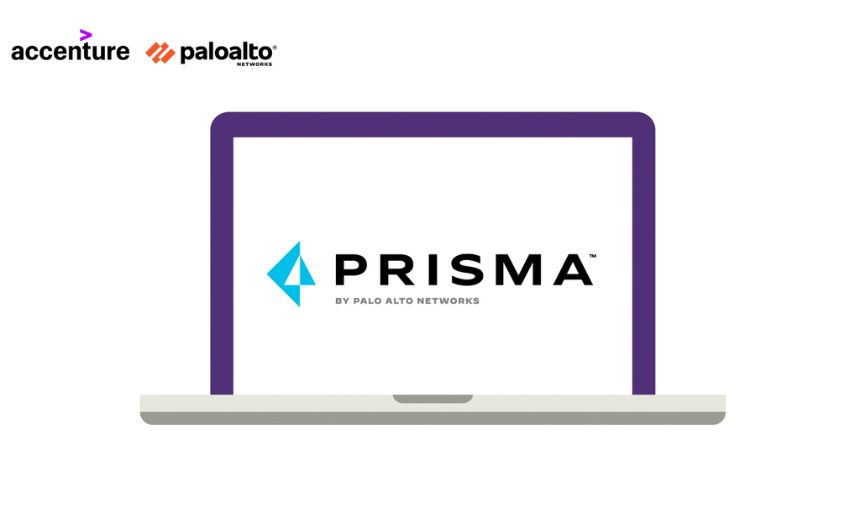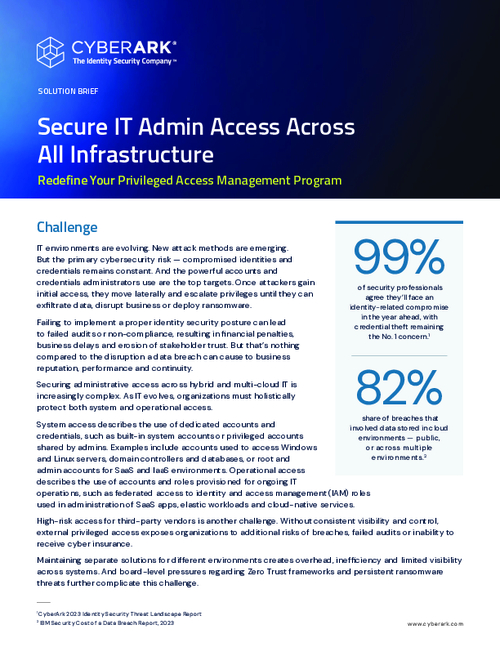Community Banking Outlook: Jeff Krejci, Nebraska Bankers Association
TOM FIELD: Hi, this is Tom Field, Editorial Director with Information Security Media Group. We're talking about banking trends today. I'm privileged to be speaking with Jeff Krejci, who's the President of the First State Bank in Lincoln, Nebraska and also the Chairman of the Nebraska Bankers Association. Jeff, thanks so much for joining me today.
JEFF KREJCI: Thank you, Tom, for giving me a call.
FIELD: Why don't you tell us just a little bit about your work, both at your institution, maybe tell us a bit about your institution, and then your work with the Bankers Association, please.
KREJCI: Be happy to. Our bank is approximately $244 million in size. Our charter is in Lincoln, Nebraska, but we are in 8 communities, smaller communities around Lincoln and Omaha, and then we have 11 locations. Our makeup of our bank is probably in the 20% area -- 20-25% area in agriculture, and the remaining is in consumer and commercial. Our bank has gone through a number of things in the last four or five years. We have done a merger. We have had our employees pretty much pushed to the edge as far as conversions and docking two different cultures in to one, but been very successful with it. We're really pleased with our organization and where we're going. With regard to the Nebraska Bankers Association, that is an association that represents all the banks in the state of Nebraska, which there are somewhere in the 250-270 area banks. I think we have one bank that's not a member at this time. So we have a pretty good -- a pretty good following and a pretty good base. The association provides a speaking voice for all of those banks, both at the federal level and the state level, as well as educational opportunities, and we do have a staff of approximately 13-15 people that man that. As far as being Chairman of the Nebraska Bankers Association, and that was a nomination process, and we went through as Chairman elect the first year, and then the second year you become Chairman, and you are the primary spokesman for the association.
FIELD: You picked a heck of a year to be the Chairman, wouldn't you say?
KREJCI: You know, isn't that a challenge? I've had some good friends of mine give me a bad time and tell me that we probably wouldn't be in this state as banks if I wasn't Chairman, so [laughter] it's been interesting.
FIELD: Well Jeff, let's talk about that, because as you know, it's just been a historic year in the banking industry. We know what we see on Wall Street, but what's the reality been on Main Street in Nebraska with your institutions?
KREJCI: In Nebraska, you know, I and a lot of people, you know, across the country, we are a small state, but we do have a good story to tell in 2008, you know, in comparative to the lot of the media news that we were hearing on the national scene. Our state government actually has a surplus right now of some $500 million, which is a significant number for a state our size, which also gives us some confidence that we can weather some storms here at this level. Also the average capital in the banks in the state of Nebraska is above the average as far as the country is concerned. And one of the more important things that I think has really blessed this state is our core deposits spend in that 75% area across the state as an average, and the national average is just slightly under 50%.
Those things, and then 95% of the banks in this state are touching agriculture somewhere or another, and we have had a very good two years in agriculture. We've seen commodity prices, you know, pretty much, as we do farm re-writes, there's a lot of cleaning going on as far as farmers paying all their debts and putting some money away and maybe buying some needed equipment and those types of things. So, you know, we have escaped in this state a lot of what you're hearing in the media. However, it is filtering in to Nebraska. If you fast-forward to the 4th quarter of '08, we have seen an unprecedented drop in interest rates, which has been national, and it's made it very difficult for Nebraska banks to continue with the margin. A lot of our investment portfolios are being called, I.E., for lower rates.
I think good-quality loans are in big demand. A number of banks that are maybe out of the metro Omaha-Lincoln area ... they're seeing their earnings decrease and their margins tighten, but our Main Street in Nebraska, you know, overall last couple of years, has been very good in my estimation, comparatively to the rest of the country. We are -- we are a little concerned going forward. We're seeing some job lay-offs. We're seeing the recession trickle in to our state. You know, we stayed away from sub-prime lending. The commercial banks, community banks in the state of Nebraska, basically did not participate in sub-prime lending. A lot of them didn't know what the hell -- what that really was when it was going on on a national level. So we escaped much of that problem. We are seeing more houses on the market. We have builders that are struggling a little bit in the state of Nebraska right now, just as they are across the country. The houses are not moving as well as they have in the past, which in turn has made it more difficult for the dry-wall layer, and the lumber supply and the electricians and the plumbers, and so we are seeing a slow down.
FIELD: So nationally, we see sort of a drop in customer confidence in the banking industry, but not so much in individual institutions. So I guess what I'd ask you is, how do you assess customer confidence in your own bank, in the state's banks, and what do you see as being the challenges for Nebraska banking institutions this year to maintain and even grow that confidence?
KREJCI: Well, the biggest problem with the confidence area in banking has been the misnomer in the media over the last couple years of what a bank is. You know, we represent community banks, which are regulated by regulators such as the Federal Reserve, the OCC, and the FDIC, as well as their own state banking department, and we have been under - under FDIC insurance and supervisions for a very long time, and, you know, a lot of the bank, what they called banks, that were family AIG's of the world and a lot of the investment, and I'll use the word banking, because that's the way the media has used it, you know, weren't really community banks. There's a really a separation there, and the community banks themselves have -we're used to that kind of a thing, and we've been in a position over the years where no taxpayer has ever lost a dime in an FDIC-insured institution, and we self-fund our own - our own premiums, and they've gone up dramatically here recently to help keep that funded as more of these non-traditional banks have joined in on the FDIC situation and become, you know, part of the fund.
FIELD: Do you find that your customers are able to sort of separate what they see on Wall Street at these, you know, really non-banks, from what, you know- they see in your own institution? Are they able to separate the two?
KREJCI: We do our best advertising-wise in Nebraska and to try, you know, to tell our story. We had a very difficult time in Nebraska in the '80's, and we saw a number of banks fail in the '80's that are agricultural-based banks, deflation of bank values, examiners had us write those loans down. That was, that and the early '90's were - were actually, as far as the state of Nebraska goes, a more difficult time than today is in the state of Nebraska. I can't say that for the country obviously, but for the state of Nebraska, and I think that our people that have lived through that, you know, are - those customers are a lot more solid today. They remember those types of experiences as well as the banks in the state that went through those situations, and that's why our capital levels are where they are, and you know, I think there's a good relationship in the communities because the people know your neighbors and friends are the people that are working in the community bank. It's a lot different when you've got a $30 million bank, and you've got 8-9 employees in it, and they're going to church and serving on the fire department, and doing all these things in the community, you know, there's more of a confidence factor there - relationships.
FIELD: Now Jeff, interesting thing is, you know, the big story nationally of course, is the TARP funds, and that's almost a step from going from being a community bank to almost a national banking institution. What - what are the attitudes in Nebraska toward the TARP program and taking that government assistance and really bringing the government in as part of your institution?
KREJCI: Well, I think there's been some confusion there also. There are two parts. There's the TARP program, and then there's the CPP or the Capitol Purchase Program. The Capitol Purchase Program is an attempt by the government to place funds in 1 and 2-rated institutions - institutions that can qualify for that to bolster their capitol. I've traveled the state of Nebraska quite a bit in the last 6 months, and a lot, again with the capitol accounts in the state of Nebraska, a lot of the banks have viewed that as expensive money. That's the government coming in - putting in 3%. Well it's a 5% cost to the bank, but it's a dividend back to the government; it's not tax deductible. So the real cost is around 7 ½%, and then there's some warrants on top of that, and those warrants can make your effective cost around 10%. After 5 years, that 5% dividend gets adjusted to 9%. So just the market place looking at that is not - is not a very good deal for institutions that have the capital and do not need the capital. On the other hand, if you're an institution that you're looking to acquire maybe an institution that's not as solid, you know, it can be a pretty good partner from that perspective.
Mixed feelings. A lot of banks don't want to be part of a government deal and the CPP program. They do not want to be a partner. However, the government pretty much regulates everything we do now. With regard to TARP funds, a different program, that's the program where we're buying assets, and quite honestly, you need to be somewhat of a more troubled institution to take those TARP funds to use to buy out and to support troubled assets. So there's really - and that's been one of the - another one of the things that we've had for problems is the media, and the people on Main Street do not understand that. They come in, and our concern is if we take the money, they're gonna say, 'Aw, you're taking the bail-out', which it isn't. It's costly. And if we don't take the money, they're gonna say, 'Well, couldn't you qualify for it?', so we're kind of caught in a - in a - in a Pandora's Box if you will, and some of what I've heard is a response from some banks is, 'We're gonna apply for the CPP funds, be approved, and not take them, so we can show the customers that we were approved, we're fine, but we're not interested'.
FIELD: That's interesting.
KREJCI: So it ranges all over the board. Institutions have different thoughts, but that's what we're challenged with the way that this has been presented by the government.
FIELD: Now it looks like we're headed toward this concept you keep hearing about of a 'bad bank./ What do you think of the proposal you've seen for them?
KREJCI: Well, that would be a national - a national program with - with an institution that buys up all bad assets. You know, I don't know that I'm real comfortable with that. I guess - it's hard for a Nebraska bank to look and make a comment about something like that, when we really don't see that type of scenario in our market place. You know, it's much like everything they've done to date, we really wont know the outcome or what's gonna happen until time has passed.
FIELD: Sure. Now, let's talk about security issues. What I'm seeing a lot in community institutions everywhere is that we're in troubled times, there's confusion in the marketplace, but the opportunists are coming, and you're seeing a lot more phishing in attempts - to separate people from their personal information. What are you seeing in Nebraska for security issues these days?
KREJCI: Well, there's - that's a great concern. It's first and foremost on our minds as bankers. Our technology is - is such that we can - we feel that we've got the tools available to control a lot of that. Where - where it gets in trouble from our perspective is in the third-party relationship, or you know, if there's somebody participating in a bill-pay system, or something that's using our Visa debit card. We had a recent scam where there was an individual that put a - they put a deal on an ATM in where you put - slide your ATM card.
Well, they can't breach our security system, but as the person puts the ATM card in it, it stops it from going in - doesn't allow the machine to capture it, and then the person gets it back, and they leave. Well, the next person comes in, and they have a photograph - a photograph of that. If they can capture their PIN number by looking over their shoulder, they can get in to their account. I mean, the - the ways are just - it's just incredible the schemes and the ways and the things that are out there to try and steal your identity. It's first and foremost on our minds. We have programs if that happens, to help re-establish credit and to get things up, but on the front line, we just - we do our best with our firewalls and our encryption to make sure that they can't break into anything that we would have, you know, storing that kind of data.
FIELD: You make a good point though. There's something like the Heartland Payment Systems breach that happens certainly outside of an institution ,but very much can affect you and your customers.
KREJCI: And it does. We've had - and it did affect people in Nebraska. We've had one institution that has told our organization, the NBA, that they feel there's roughly 70 customers compromised that were utilizing that. When that happens, and it's very unfortunate, the best thing we can do is - is to try and when - we do have programs and try and re-establish credit -- stop the loss. However, you do know that we have a very strong interest in this because if there is a loss in a Visa debit-card usage or something like that, the bank has to eat that.
FIELD: That's right, and you pay the replacement cost as well for cards.
KREJCI: That's right.
FIELD: Jeff, looking at your institutions and other challenges you face, what would you say are the top two or three challenges for Nebraska-banking institutions in 2009?
KREJCI: I would have to say that the biggest challenge is going to be our interest-rate margin - maintaining some kind of a margin and keeping our earnings this next year. With these rates dropping as they are, short of loan buying, which not every bank in Nebraska is able to find quality loan buying, be looking at a shrinking margin. I think it's gonna be more challenging. It's gonna be more exciting for management if you have to manage in this type of environment, but when you're looking at the end of the day needing to settle and balance your bank with Fed funds, and if you're selling them, and you're getting.09 return, or you're investing them and getting 1.4, that's a pretty difficult situation.
I think secondly in the state of Nebraska, we have an issue with water here in this state. It's gonna become in front of our Unicameral here shortly. As far as banks are concerned, we have loans on land that are irrigated, it puts that value of that ground at a certain level. If that individual, who has the right to sell their water rights can do that without the bank being involved, we can actually see our collateral value go down. So that has become a major issue for us for banking in the state of Nebraska this next year with regard to our state Unicameral.
FIELD: So, flip side of that Jeff, you know your institutions well. You know what works on Main Street. What do you think that folks are doing in Nebraska that people elsewhere in the country could take a page from and look at as - as a best practice?
KREJCI: Well that's - that's a difficult situation. We've been blessed here because of the ag economy. We do have some concerns going forward with the ag economy that, you know, our costs have risen in ag production to the point on - let's just take corn for instance, we were needing approximately $4 a bushel now in cost, and we're not seeing that as of today. So we do have some concerns in that area, but all in all, I think the model that Nebraska has is the fact that we have community banks that are not - I mean - they're of the size, but they are involved in our communities. We're usually in the city council. We're on the Chamber. We're involved in economic development. We're serving on the volunteer-fire department. We're involved in the school or the school board, and we're interacting and building relationships throughout the community, and I think the attitude of the community bank in Nebraska where - we feel like we are an engine driving that economy in that town. We're first to support, you know, the ball team - the new field if they put it out there, or the band if it's gonna go somewhere, or you know, our Junior Achievement - those types of things, and we re-invest for those reasons, and I think that model, well with the long haul, is what's made Nebraska solid and strong and community with relationships in their banks.
FIELD: Jeff, that's well said. I appreciate you taking time to share your insights today.
KREJCI: Well, thank you. I appreciate the opportunity.
FIELD: We've been talking with Jeff Krejci, Chairman of the Nebraska Bankers Association. For information Security Group, I'm Tom Field. Thank you very much.



















